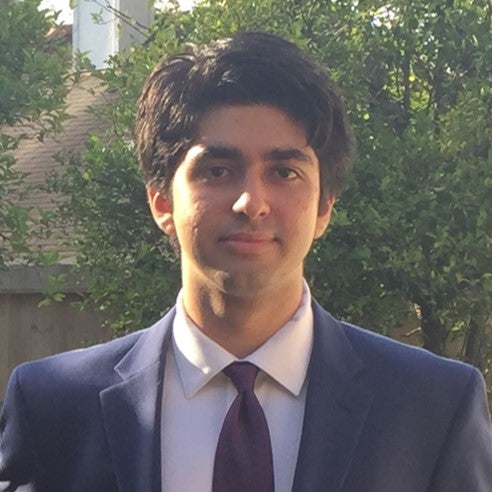Major: Mathematics
Minors: Biochemistry, Physics, and Computational and Applied Mathematics
Research Advisor: Lynn Zechiedrich at Baylor College of Medicine
Sophomore Cameron Noorbakhsh joined Lynn Zechiedrich’s computational biology lab at Baylor College of Medicine because, “Their fancy talk about knot theory really got me,” he joked. As a math major with minors in Biochemistry, Physics, and Computational and Applied Mathematics, Cameron thought that computational biology research would combine his many intellectual interests. “I saw online that the Zechiedrich lab had written biophysics and mathematical biology papers about DNA topology, so I decided to reach out,” he explained.
“One of the greatest things about Rice is the easy access to research for undergraduates. I get almost daily emails from department listservs about research opportunities,” said Cameron. And if those opportunities aren’t enough, in his experience, other labs at Rice and the medical center are very open to emails from interested undergraduates. “I’ve taken advantage of this, having joined my lab at the medical center by sending a cold email,” he said.
Over the summer, Cameron worked with the Zechiedrich lab, investigating the accuracy of simulations of supercoiled DNA by comparing predicted results with experimental measurements. He also studied the effects of sequence and environment on DNA conformation, answering questions about how experimentalists can manipulate conditions to control DNA denaturation and conformation and about the behavior of short supercoiled DNA chains.
“This research experience has been a great introduction to the world of academia. I have gotten to work with many brilliant biologists and biophysicists from around the globe and learned a lot about research and patience,” said Cameron. For him, the most gratifying aspect of research was the learning itself. “This has really been the first time in my life where I have gotten to go through the scientific process at such a level,” he explained. “Even if as an undergraduate I am not working on ‘the next big thing,’ just being able to discover something no one has thought about before has been deeply motivating.”
Cameron loves that learning has no end in research. “There is always more to discover and do; even after finding one result there is always a way to build on that and find more,” he said.
After graduation, Cameron hopes to attend an M.D./Ph.D. program and later perform translational research so that he will never have to stop building on his knowledge and finding out more

